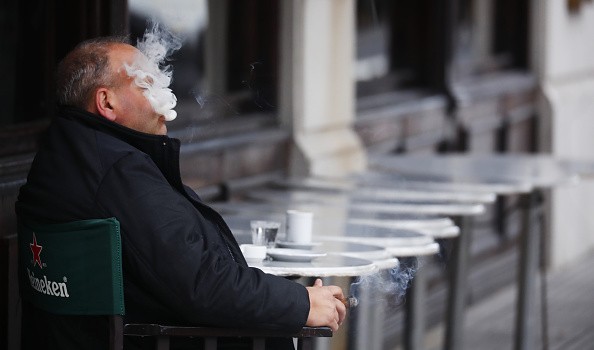Researchers found out that adult smokers with mental illness consume the most caffeine in the United States. Aside from this, people with bipolar disorder and schizophrenia are at the highest risk of negative health consequences.

Caffeine Consumption
A new study by a group of researchers at Rutgers University revealed that there is one group that tops that chart in caffeine consumption. According to Neuroscience News, adult smokers with mental illnesses are at high risk of negative consequences.
Rutgers Robert Wood Johnson Medical School Addiction Psychiatry Division Director Jill M. Williams stated that while caffeine is generally considered safe and even has some health benefits, it also comes with negative impacts.
She added, "But we just don't understand the cognitive and psychiatric effects of high caffeine intake, especially among smokers with mental illness." Caffeine is one of the most used psychoactive drugs in the country, as it mainly affects a person's alertness, attention, and vigilance.
Along with her colleagues from the Rutgers Department of Psychology and the University of California San Francisco School of Medicine, Williams analyzed data from the recruited 248 adult smokers. All participants were smokers, with some of them having schizophrenia or bipolar disorders and some of them with no psychiatric diagnoses.
As per the released print in the January issue of Psychiatry Research, consuming more than 600 milligrams is not recommended as it can lead to anxiety, insomnia, excess stomach acid, and heartburn. Caffeine also affects executive functions like reasoning and decision-making.
Williams added high caffeine intake might also impact psychiatric symptoms or sleep in adults. Previously conducted studies have been done mostly with healthy adults without mental illnesses, which makes sense that the information regarding this matter is less known.
She argues that while people nowadays consume huge amounts of caffeine in more concentrated forms like espresso or energy drinks, the effects of high caffeine remain widely understudied.
Caffeine Intake and Mental Illness
News Medical & Life Sciences reported that Williams laid out several theories to explain the relationship between caffeine intake and mental illness.
There is an established association between caffeine and smoking, as people with mental illnesses smoke at rates two to three times higher than the general public. This results in increasing caffeine metabolism through the tars in cigarette smoke, which achieve stimulating effects.
Aside from this, Williams explained that high caffeine intake leads to a possible self-medication effect among people with mental disorders, as they are prone to all types of addictive substances. Researchers also found out through this study that moods are usually linked to caffeine intake.
ⓒ 2026 TECHTIMES.com All rights reserved. Do not reproduce without permission.




